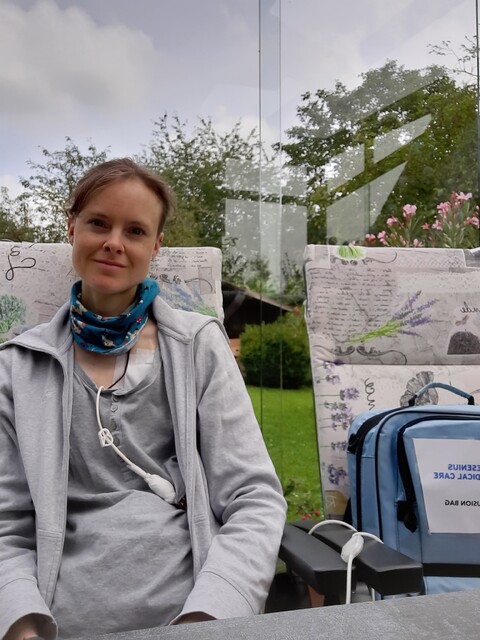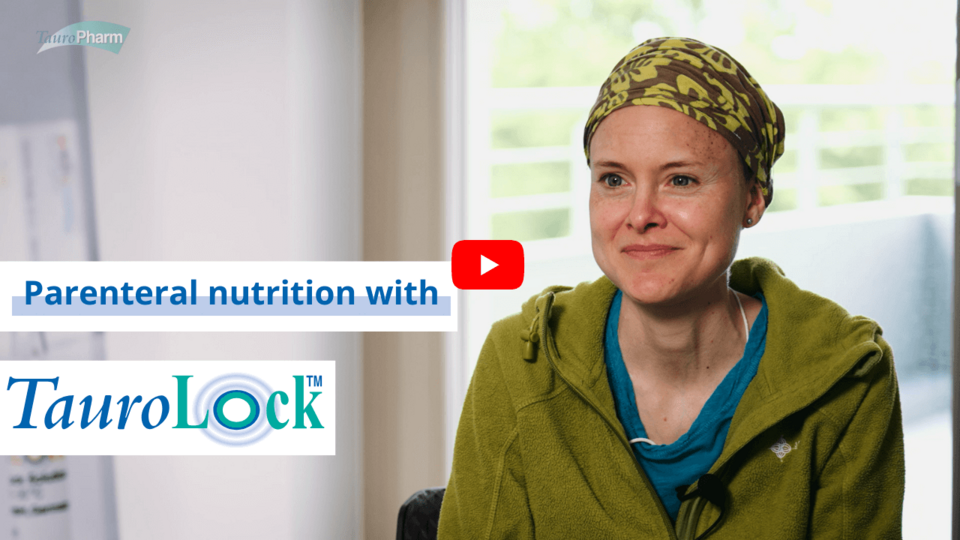"You can't do everything, but you can make the best of everything"
PN patient Lisa on living with chronic illness
Lisa has learned to cope with health issues from different angles: As a paediatric nurse, she looks after patients who face major challenges in their early years. As a patient with short bowel syndrome (SBS), she faces such a challenge herself – but sees herself neither as victim, nor as a heroine. In our interview, she told us more about her philosophy and what makes her everyday life with parenteral nutrition easier.
Let's start with a few medical facts: What’s your diagnosis and how has it changed your life?
I have a very rare bowel disease, which meant that more and more parts of my bowel had to be removed over the years. This has eventually resulted in short bowel syndrome. I’ve been on parenteral nutrition since 2012, since I was 22. Fortunately, I’ve been locking my Hickman catheter with TauroLock™ from the very start because my homecare provider recommended it.
How does your daily routine with parenteral nutrition look like?
PN runs for at least 16 hours a day. I go to work in the morning and start the infusion after lunch. It then runs until the next morning. It's annoying having to use the bathroom every two hours at night, being woken up at 5 am by the infusion pump alarm, getting stuck on every door handle with the infusion line, and constantly carrying a backpack or infusion stand with me. But you get used to a lot of things.
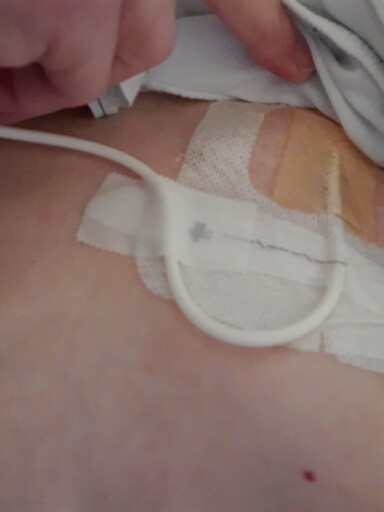
Have there been any complications so far, have you ever had a catheter-related infection?
Fortunately, I have never had sepsis so far. Thank goodness for that! It only happened once that the entry site got inflamed (this is called a tunnel infection). The catheter then had to be removed because treatment with antibiotics didn't work.
What about food, do you still eat normal meals?
I have a normal sense of hunger and therefore eat like everyone else. However, I can't eat as much at once, partly because of chronic gastritis. That's why I have to spread it over several small meals a day. The choice is also limited. For example, I can't tolerate spices, salt, fibre... I have to puree a lot of things to be able to digest them.
You surely have to organise your days meticulously. What do you do when you have a special occasion coming up?
Spontaneous or outdoor activities are rather difficult. I have to plan in advance exactly when the PN will be running and when I can pause it. When I'm out and about, I carry the infusion bag and the pump in a backpack. With the water bottle, snacks, etc., it quickly becomes too heavy for a back with osteoporosis. Therefore, I prefer having regular daily routines and appointments close to home.
This must feel frustrating at times – how do you cope with it?
Sure, my everyday life isn't easy. But I always have a choice: Do I look at what doesn't work or what does? I try to see the positive in a situation whenever possible. For example, when I spend time with my little nieces: Of course, I can be annoyed that I don't have the energy to romp around with them for hours. Or I can be happy that I can go to the playground and watch them run around. That’s a huge lesson I’ve learned as a paediatric nurse: We all have a "backpack" to carry. For some it's bigger, for some it's smaller. But we all have things to be grateful for. And sometimes, it’s precisely those blows of fate that make us appreciate life all the more.
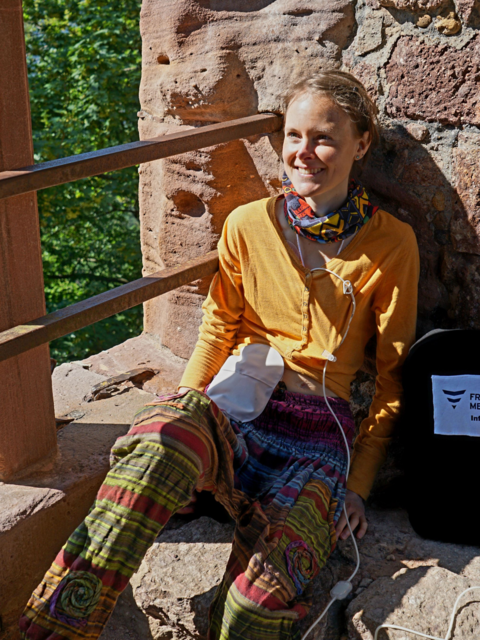
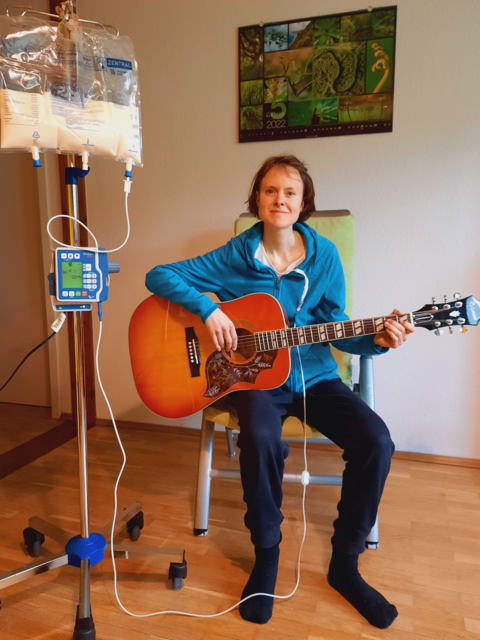
Always stay positive: Is that the advice you’d give other patients?
Yes, in a way – but that's often much easier said than done, of course. What I definitely don't want to convey is: "You can do anything you want, you just have to believe in it!" Slogans like this are a slap in the face for many patients with serious or chronic illness. Depending on what illness and limitations you have, some things are simply not possible – not least because of the barriers in our world. No matter how much you want it. It often hurts to compare yourself to others who can do all of it. It’s much more helpful to look at your own progress and take small steps towards realistic goals. For me, being able to go back to work for a few hours a week is a success. Helping fellow human beings and doing something useful for our society – that's a great feeling and motivates you to keep fighting.
How would you generally assess the situation of patients with parenteral nutrition? Are they well supported by the healthcare system, or do you still see room for improvement in one area or another?
In general, I am incredibly grateful for the care I receive today. Just the fact that parenteral nutrition is possible at all – things were very different a few decades ago, many patients were still dying. Today, PE keeps me alive. Above all, I’m also grateful that TauroLock™ helps me protect my central-venous catheter against infections. But unfortunately, this is a privilege that many other patients do not yet have. That's why I’d like to see more investment in preventive measures in the future. Hospitals and health insurance companies should realise how much money they could save if infections were avoided. The patients I know who also use TauroLock™ or NutriLock™ only have positive things to say about it. Ideally, everyone who needs this protection should be able to get it, no questions asked!
